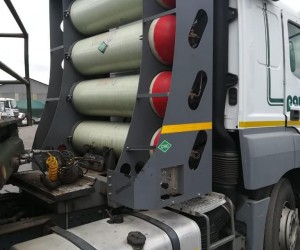Mobility in South Africa is a crucial part of any business. The unstable fuel prices have increasingly sparked the debate on which fuel type is the most expedient. Taking into consideration the emerging Carbon Tax Bill, the conversation is no longer just about efficiency or current prices, but rather the long-term implications in terms of cost. South Africans can no longer “afford” to pollute the environment. The question remains, which car fuel is most advantageous? We looked at 3 of South Africa’s most popular vehicle fuels.
Gasoline/Petrol
Gasoline is an old pal, the internal combustion technology and dynamics are relatively mature and well understood. However, the recent price hikes have revealed it to be an unreliable option due to long term affordability. Supply may be abundant, but the fluctuating prices make this fuel a pricy option for businesses.
On a more technical note, gasoline internal engines are quite complex, they regularly run hot, requiring distinct material and a cooling system to get rid of the waste heat, all this could get very costly in a fleet.
The combustion of gasoline produces toxic chemicals such as carbon monoxide, nitrogen oxide, and sulphur. Some of these chemicals contribute to global health and environmental hazards. Of course, perfect combustion produces less toxic chemicals, but in the case of gasoline, even perfect combustion is guaranteed to produce carbon dioxide, a primary contributor to global warming.
Diesel
Diesel has been a highly preferred fuel for bigger vehicles such as trucks, tractors, and buses. However, when combusted, diesel emits a dirty black smoke, this is a health hazard as it is easily breathable and highly polluting.
Diesel is more viscid than gasoline. This makes it likely to leak and slower to evaporate once spilled. Also, because of how diesel is processed in an engine, it produces the loudest combustion, this is despite advances in diesel-engine technology. There seem to be even greater disadvantages to diesel than gasoline.
Natural Gas
Natural gas is a naturally occurring hydrocarbon gas mixture consisting primarily of methane. It is formed when layers of decomposing plant and animal matter are exposed to intense heat and pressure under the surface of the earth.
Compressed natural gas (CNG) is a fuel that can be used in place of gasoline and diesel fuel as it is applicable to small vehicles and larger vehicles. The biggest debate with this fuel has always been the question of sustainable supply. “What is the point of punting demand and converting vehicles when the supply is uncertain,” they say. With the current availability and discoveries of natural gas in neighbouring countries, such as Mozambique and Namibia, and the discovery of offshore gas reserves in South Africa, the gas industry in South Africa is undergoing rapid expansion. This is enough Natural Gas to outlive anyone alive today.
Now that we know that Natural Gas is available and will be available for a long time, these are the undebatable advantages to using Natural Gas Vehicle (NGV)
Cost: The cost of Natural gas is far less than that of diesel or gasoline. It is always the least expensive of the three.
Low Maintenance Cost: The maintenance costs of natural gas vehicles are very low, this is due to its clean combustion.
Less Pollution: Air pollution caused by vehicle emissions is a huge concern and something that we need to control to ensure a safer and greener environment. Natural gas vehicles’ greenhouse gas emissions are far less and not as hazardous to the environment as the emissions from gasoline vehicles. It is also said to be 80% less harmful to the ozone layer.
“Unfortunately, most of the gas stations for this type of gas exist only in California.” - www.cartreatments.com
Identifying this shortfall, a division of CNG Holdings, NGV Gas sets up Compressed Natural Gas (CNG) filling stations for private and public transport, as well as in-house fillings stations for large companies. Currently, NGV Gas has installed public Filling Stations in Langlaagte, Dobsonville, Vanderbijlpark, and Pretoria. The company reports more CNG Filling Stations in the near future.










